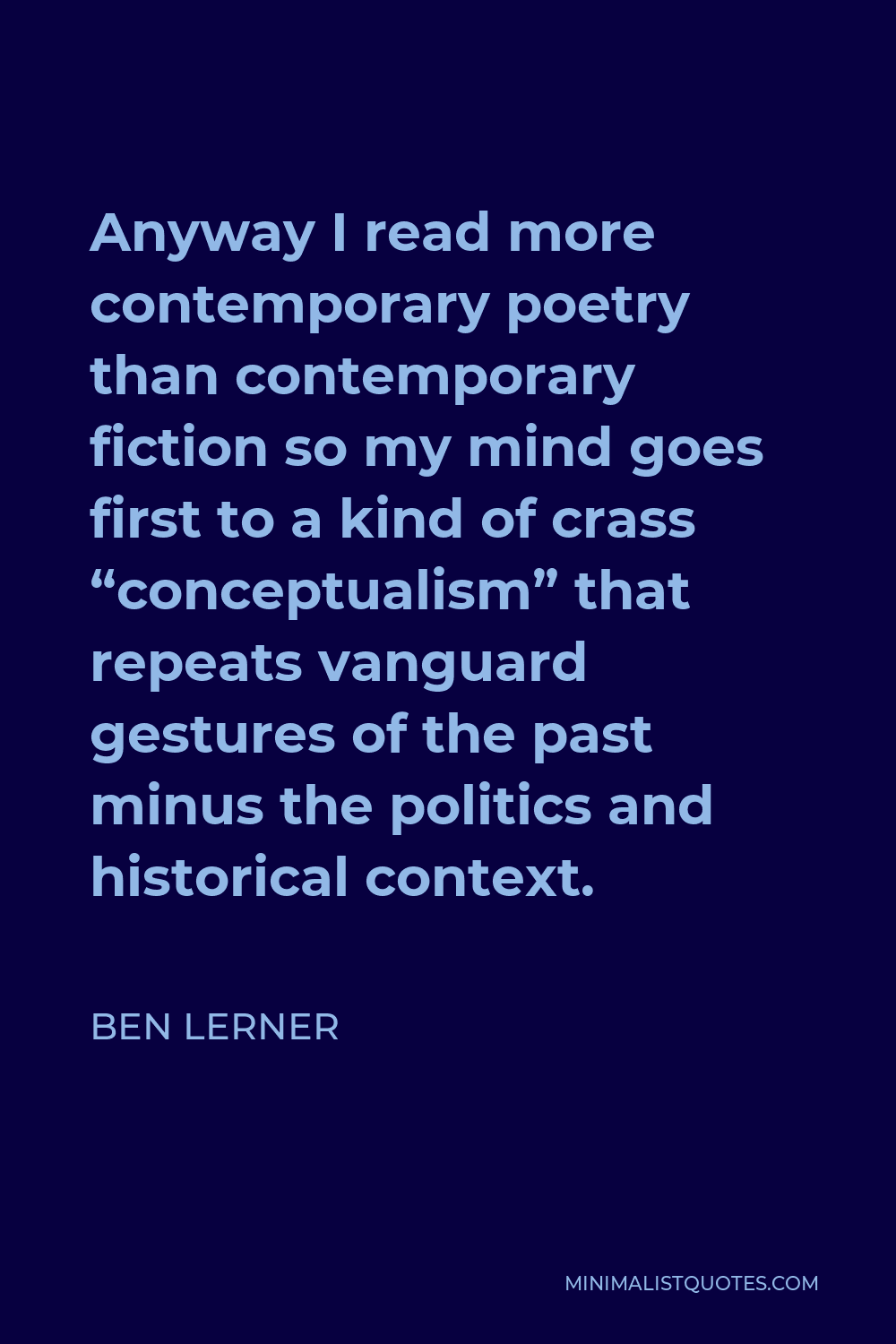Most of us start from that position of irony now and what I wanted to do – really felt like I had to do if I was going to write another novel – was move towards something like sincerity.
BEN LERNERAnyway I read more contemporary poetry than contemporary fiction so my mind goes first to a kind of crass “conceptualism” that repeats vanguard gestures of the past minus the politics and historical context.
More Ben Lerner Quotes
-





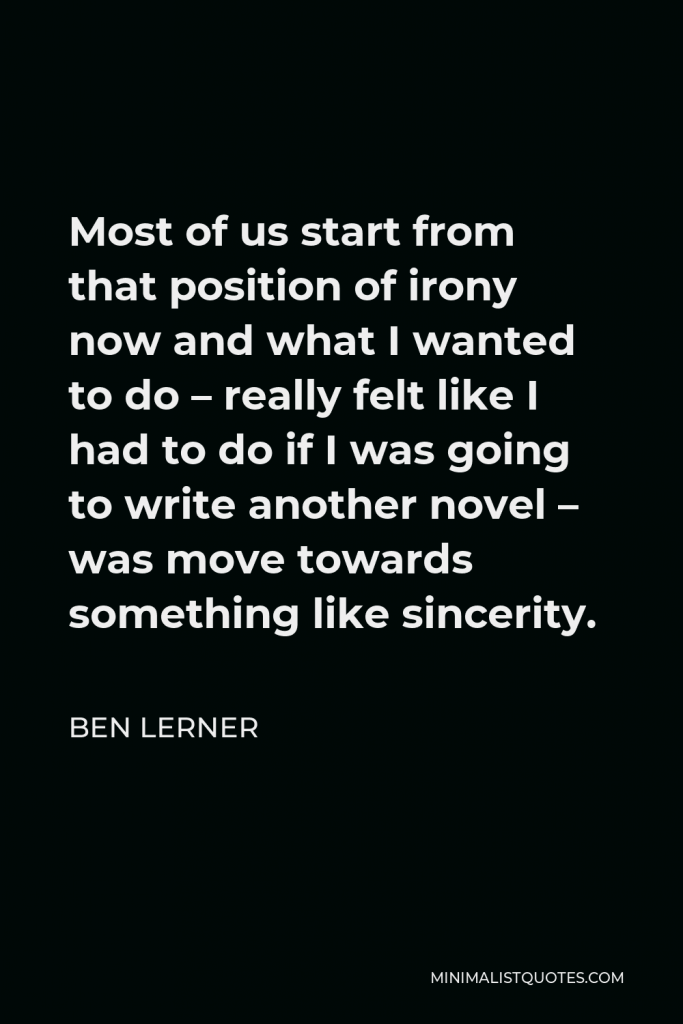

-






I think the anti-intellectualism of a lot of contemporary fiction is a kind of despairing of literature’s ability to be anything more than perfectly bound blog posts or transcribed sitcoms.
BEN LERNER -





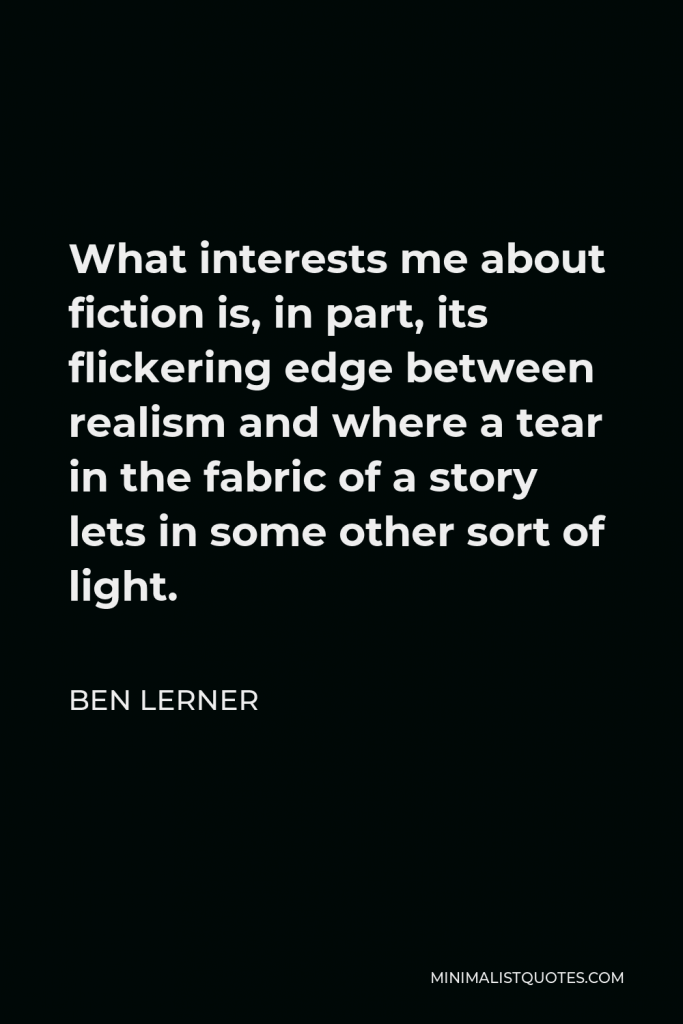

What interests me about fiction is, in part, its flickering edge between realism and where a tear in the fabric of a story lets in some other sort of light.
BEN LERNER -





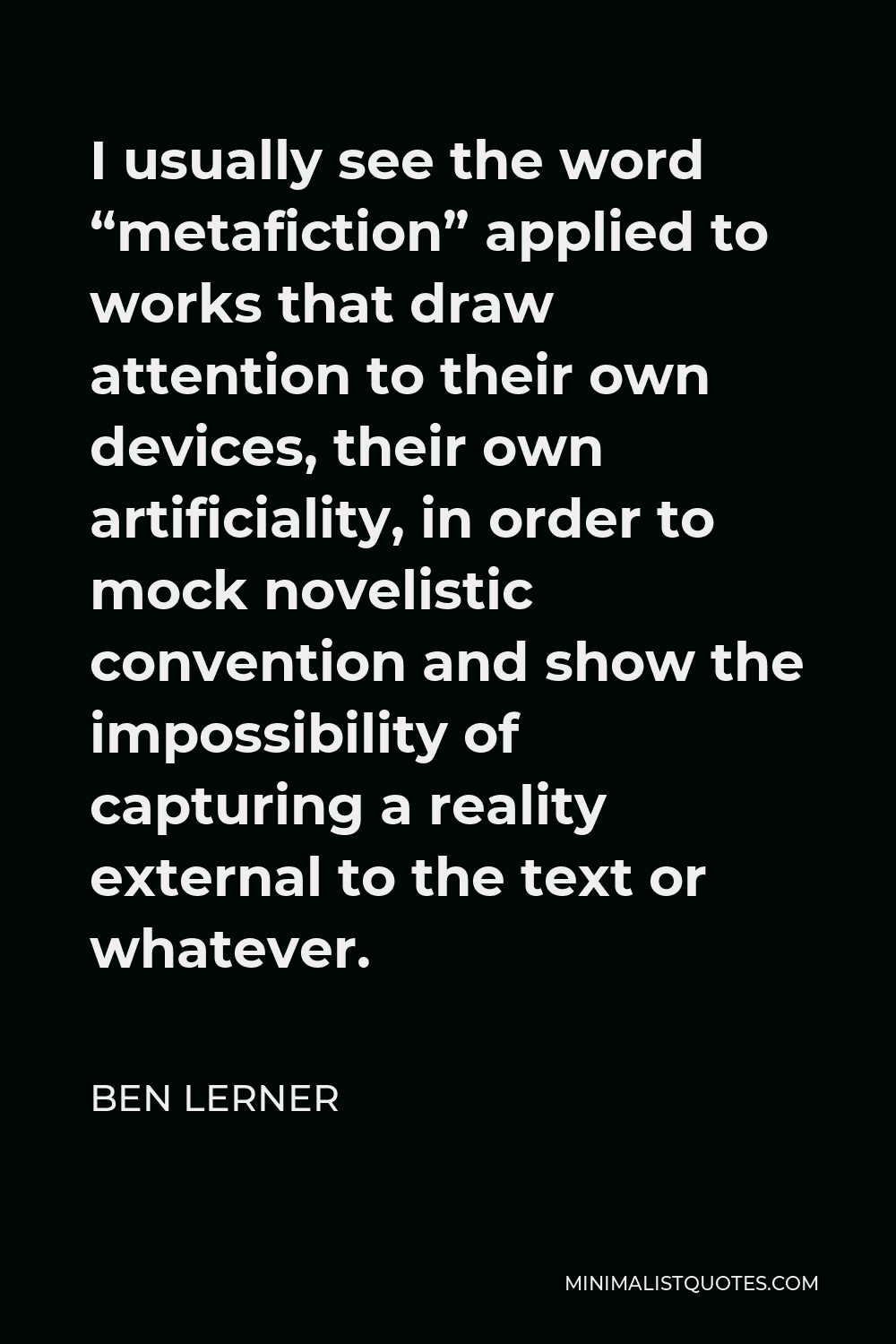
I usually see the word “metafiction” applied to works that draw attention to their own devices, their own artificiality, in order to mock novelistic convention and show the impossibility of capturing a reality external to the text or whatever.
BEN LERNER -





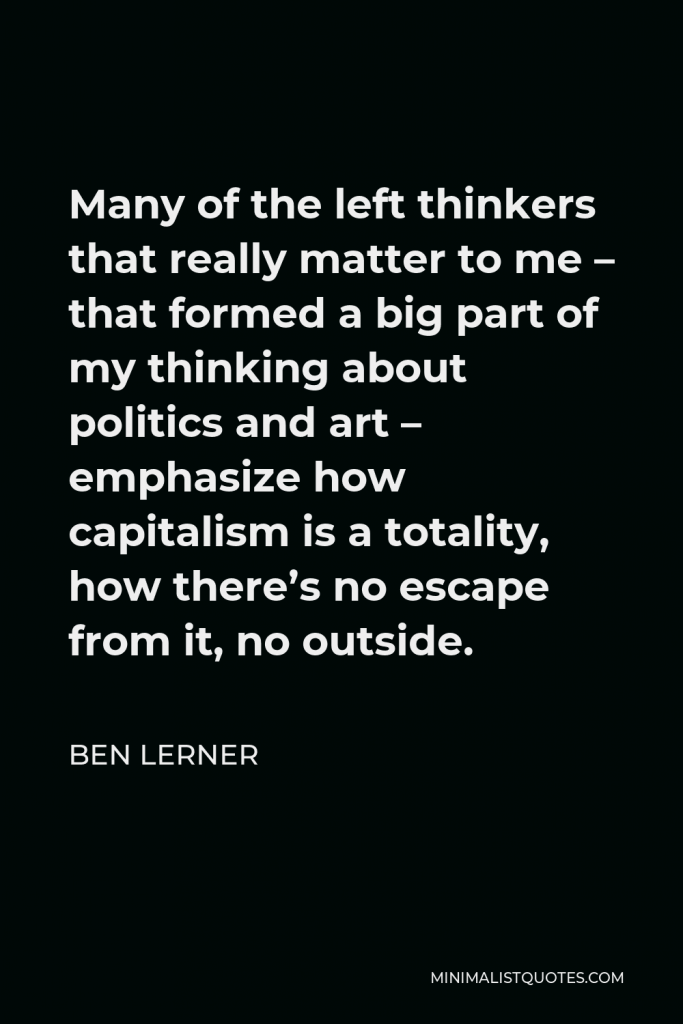

Many of the left thinkers that really matter to me – that formed a big part of my thinking about politics and art – emphasize how capitalism is a totality, how there’s no escape from it, no outside.
BEN LERNER -





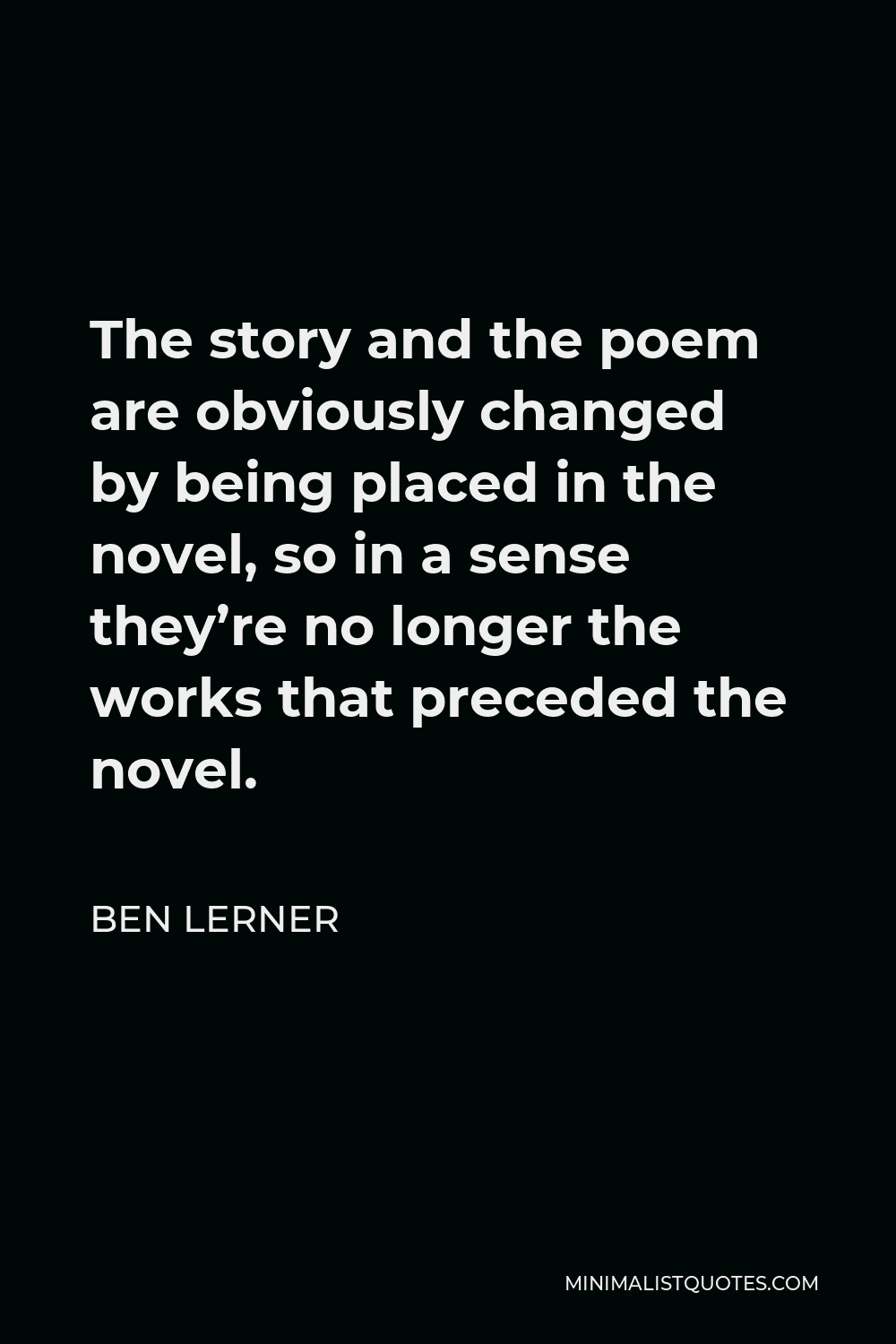
The story and the poem are obviously changed by being placed in the novel, so in a sense they’re no longer the works that preceded the novel.
BEN LERNER -





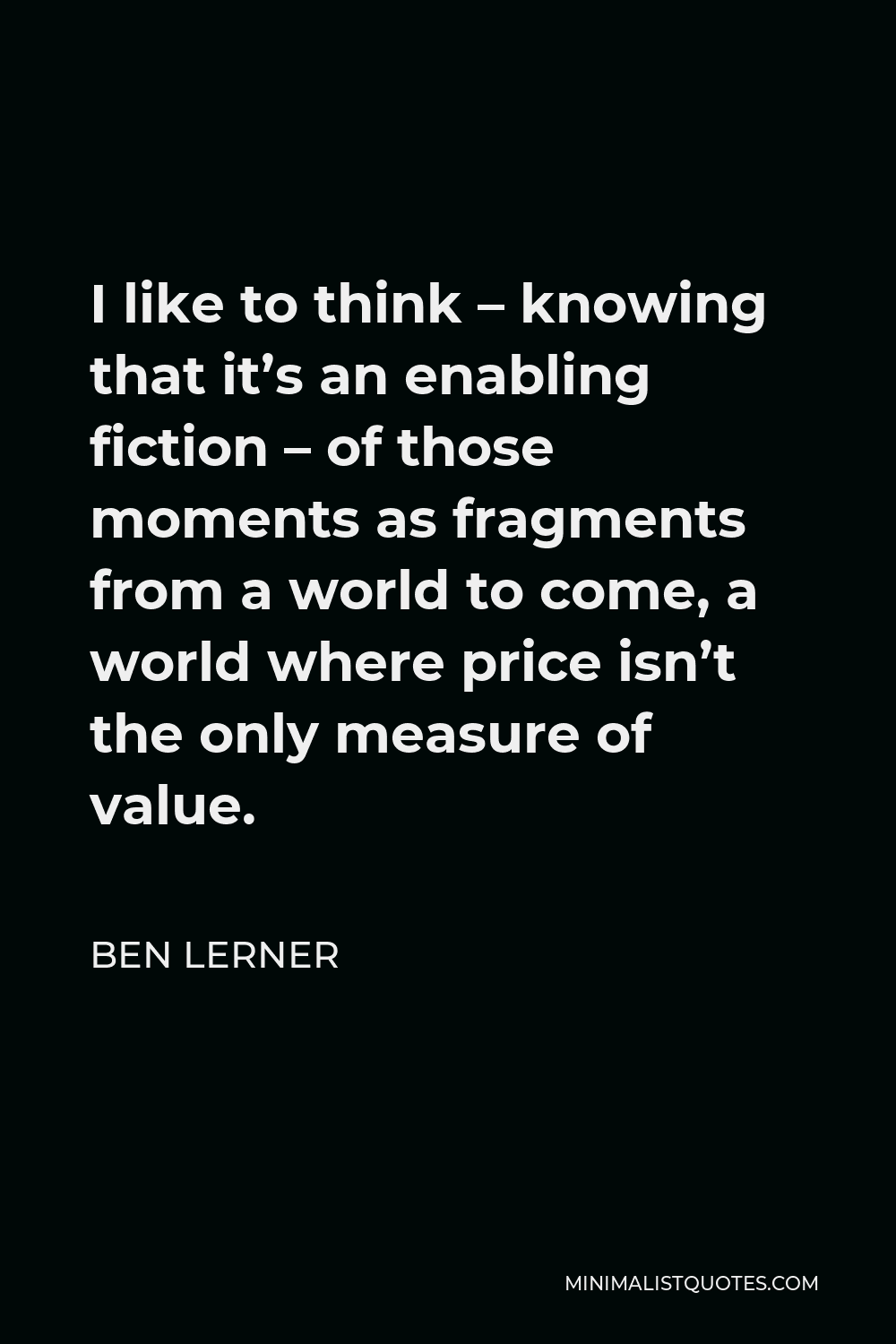
I like to think – knowing that it’s an enabling fiction – of those moments as fragments from a world to come, a world where price isn’t the only measure of value.
BEN LERNER -






Are there are fireflies on the West Coast? I never saw any when I lived in California.
BEN LERNER -






Maybe now if you’re not an exhibitionist you’re private. Or maybe it’s just that for a lot of people – sometimes in interesting ways, sometimes in stupid ways – there’s no division between the art object and what surrounds it.
BEN LERNER -





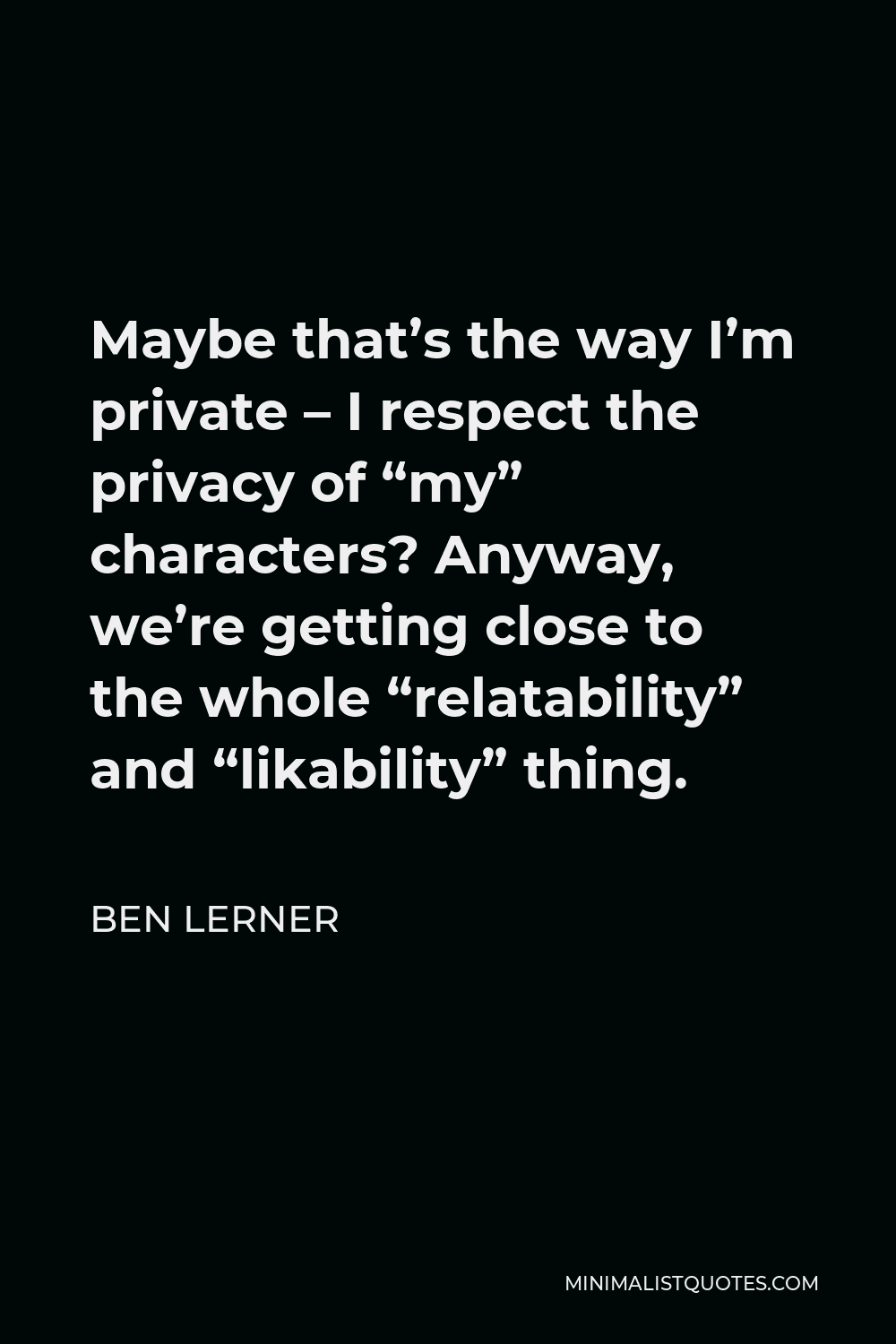
Maybe that’s the way I’m private – I respect the privacy of “my” characters? Anyway, we’re getting close to the whole “relatability” and “likability” thing.
BEN LERNER -







I’ll work my way from irony to sincerity in the sinking city, a would-be Whitman of the vulnerable grid.
BEN LERNER -







Maggie Nelson cuts through our culture’s prefabricated structures of thought and feeling with an intelligence whose ferocity is ultimately in the service of love. No piety is safe, no orthodoxy, no easy irony. The scare quotes burn off like fog.
BEN LERNER -






I’ve been building a fiction in part around the Marfa poem since my brief residency there, which has kept it from receding into the past.
BEN LERNER -





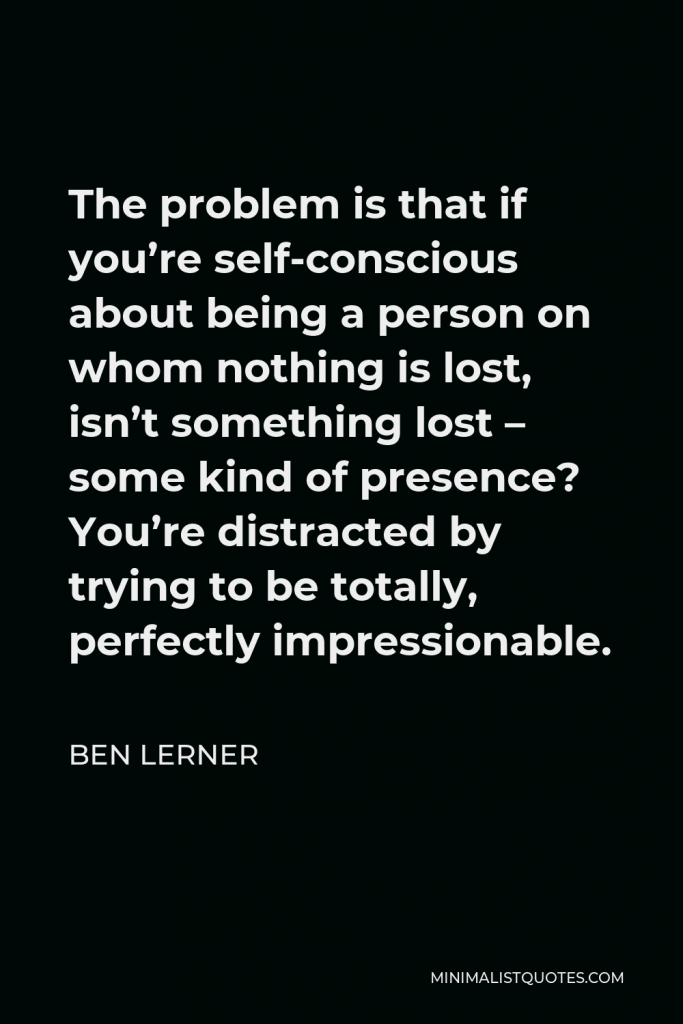

The problem is that if you’re self-conscious about being a person on whom nothing is lost, isn’t something lost – some kind of presence? You’re distracted by trying to be totally, perfectly impressionable.
BEN LERNER -





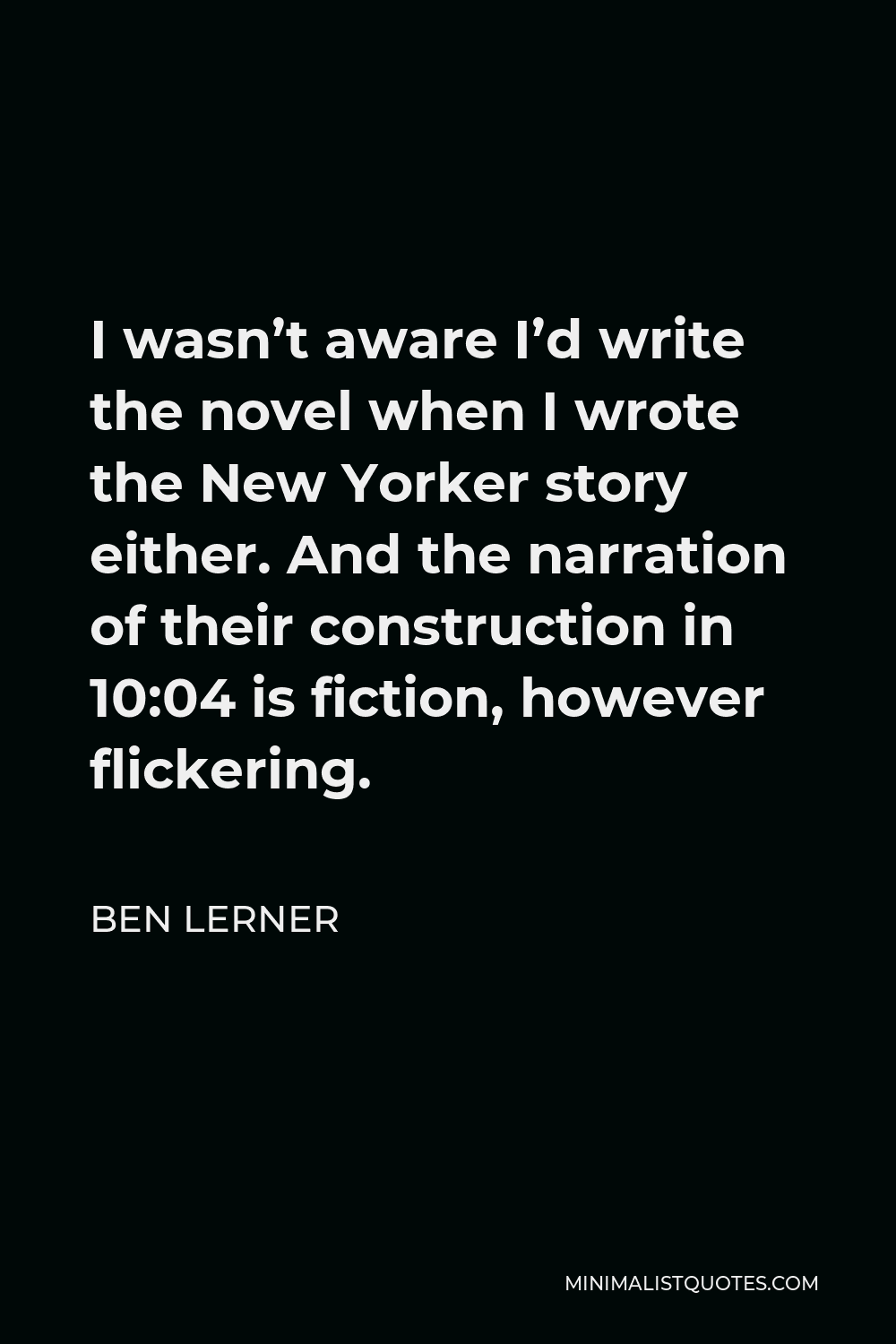
I wasn’t aware I’d write the novel when I wrote the New Yorker story either. And the narration of their construction in 10:04 is fiction, however flickering.
BEN LERNER -






I’m defending fiction as a human capacity more than as a popular or dying literary genre.
BEN LERNER


